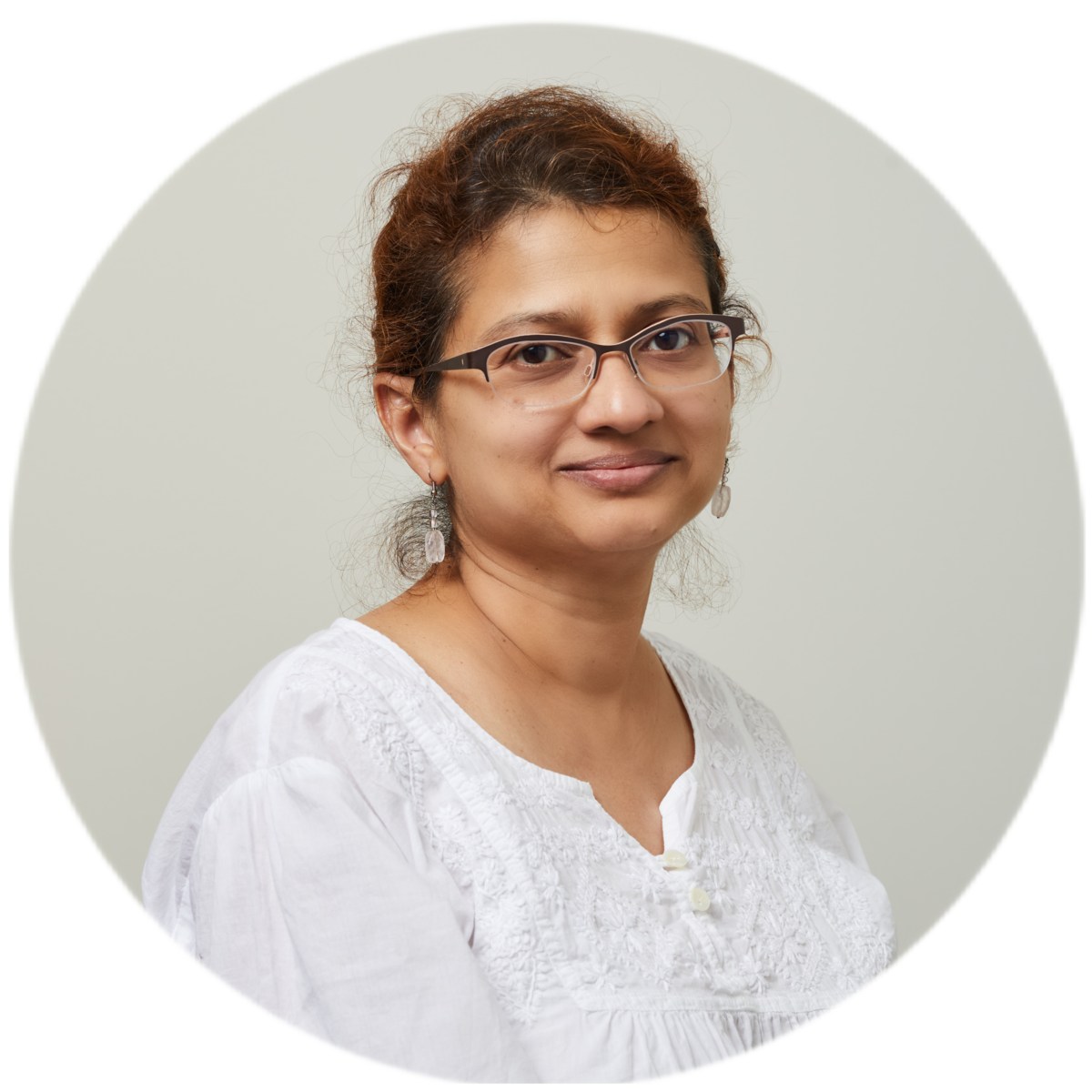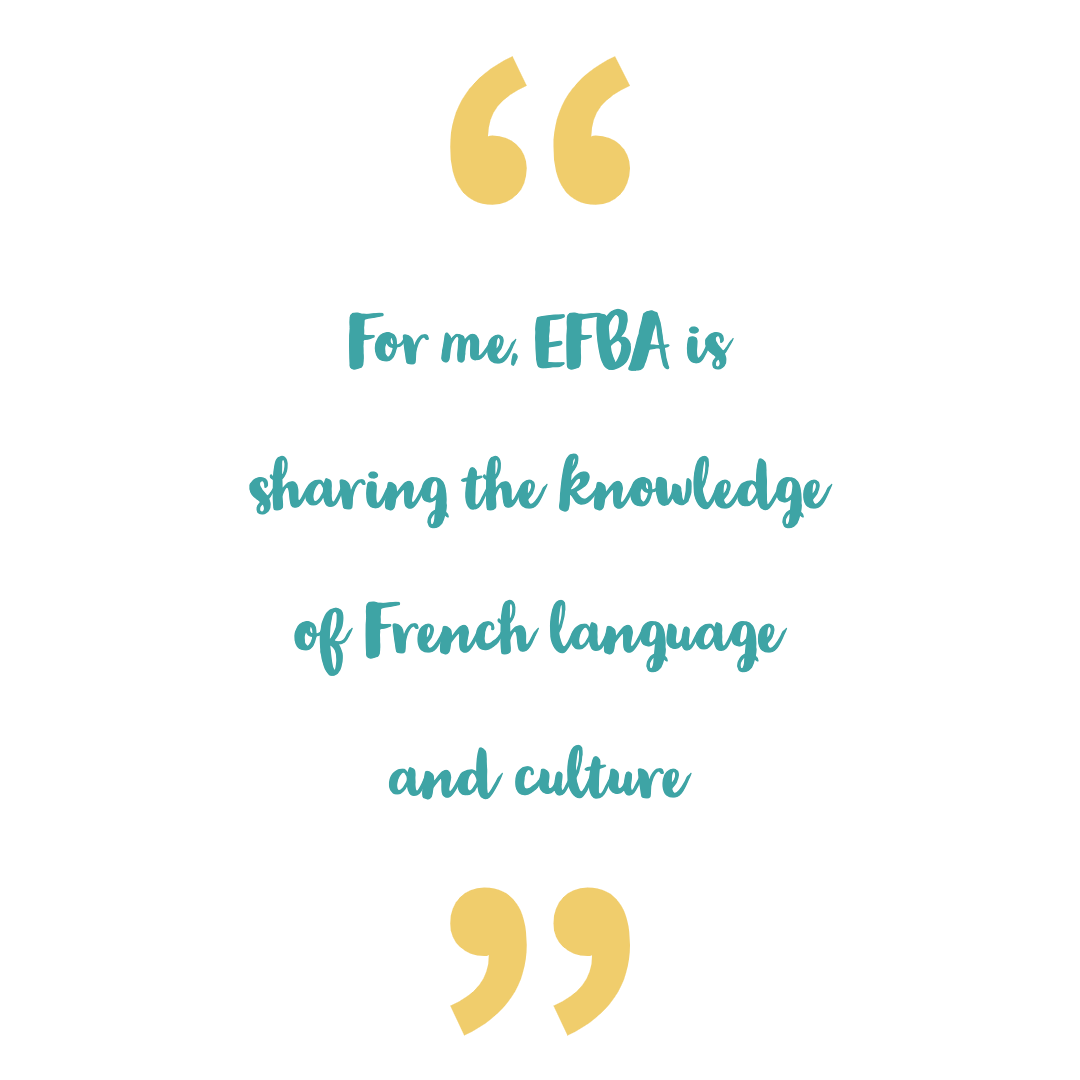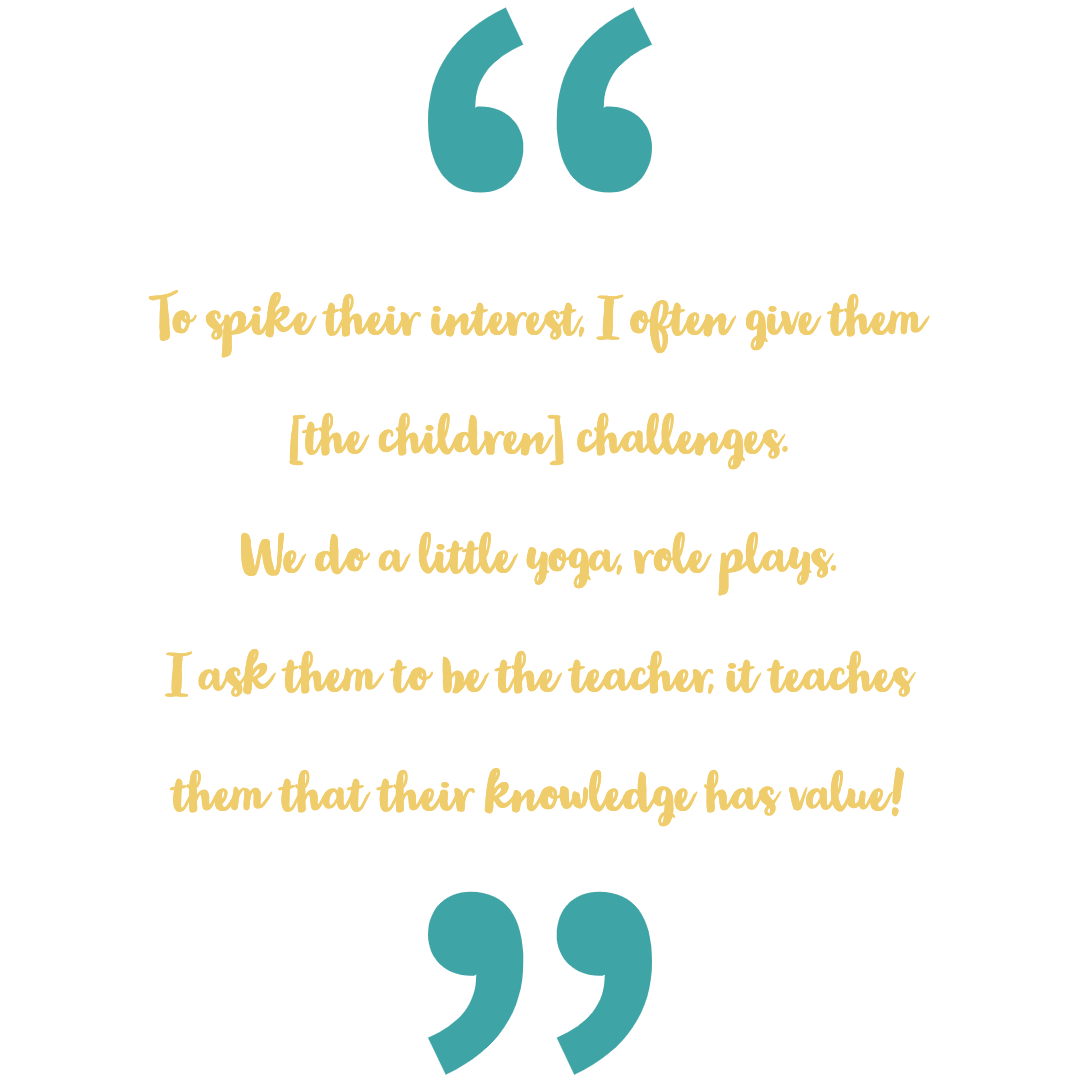
Toral grew up in Djibouti and has lived in California since 1988. She has been teaching at EFBA for 7 years. She teaches in 2 different classes: one of 12 students in Mountain View and one of 6 students in Palo Alto. She is also co-teaching in a class of 8 students in Mountain View. Before EFBA, she spent four years as a project manager for a non-profit organization that organized mentoring programs. During that time, she implemented their email mentoring program, which matched 150 to 200 students with over 150 volunteer mentors via email.
Introduce yourself: Where are you from? What are your origins? Your educational background? What did you study?
I was born in India, then at the age of 6 months, I moved to Djibouti, Africa. At the age of 3, I enrolled in the local French Catholic school and was the first non-French person to be accepted into the school. At first, it was a one year probation. It went well, easing my parents’ apprehension that we did not speak French and that there were no other schools nearby. At 5 years old, I had the opportunity to be transferred to an Indian school but I refused, and I stayed in the French school. I had already spent 3 years in this school, and I was well integrated and I had friends! I stayed in Djibouti for 18 years, and completed my Bachelor’s in English from the University of Angers in France.
I had family in Los Angeles, and I applied to do my Master’s degree to be an associate professor in the United States. My admission was refused and I was required to redo my Bachelor’s Degree. I therefore decided to major in French and I challenged myself to pass all the final exams in French! I got my Bachelor’s in two years. I was then admitted to Stanford and completed my Master’s degree in 9 months. I was offered a Ph.D. position, but I refused because I was already married and did not want to be separated from my family. In addition, it can be difficult to find university job openings in the United States.
Apart from French or English, do you know other languages? If yes, could you say something in that language?
I speak Hindi and Gujarati. I understand Spanish and Italian, but no longer practice those languages.
Hindi: “Mein French bolti houn.” ; “I speak French.”
Gujarati: “Tamaru naam shu che?” ; “What’s your name?”
What is EFBA for you? Why did you choose EFBA over other organizations?
I heard of EFBA via Gabrielle, 8 years ago. I contacted her initially, but did not hear anything back for a while. Then I inquired again and was interviewed. EFBA did not have as many locations at the time, so all positions were already full.
Gabrielle offered me an assistant job in San Jose. So I worked as an assistant for one year, then I became a teacher for children enrolled in the French as a Second Language curriculum.

I continued with this curriculum until last year, when I was offered a transfer to the Francophone curriculum. So, I started teaching in a Francophone class in Santa Clara. There were 3 different levels and I did not have an assistant, which was a challenge, but it went well!
For me, EFBA is sharing the knowledge of French language and culture. Considering my academic trajectory, it seemed a logical opportunity for me to share this knowledge.
Why did you want to become a teacher and what does teaching mean for you?
Because I love kids and I do not have children, so my students are like my kids! And also, children are the future.
Do you think learning a new language is beneficial and why?
There are many advantages, which you can put to use in several countries. It opens up a lot more doors. Even when you travel it is an advantage.
My nephew learned French. At first, he did not have much interest in it. Today, his understanding of French allows him to understand certain documents as part of his studies.
How do you teach French to your students?
I try to do a little bit of everything: imagery, conversation (I prepare questions, riddles and charades …) and especially repetition. You have to practice language as often as possible to assimilate it.

How do you keep your students’ interest alive?
Often students tell me that they are in class at EFBA because their parents have enrolled them there, when they did not necessarily want to be.
To spike their interest, I often give them challenges. It shows them that they do not know everything and that there is always something to learn. For example, I ask them where Djibouti is and most of the time they look at me with big round eyes. This engages their curiosity.
We also play a lot of games. They love playing Scattergories and Hangman! We do a little yoga too. At the end of the session, we make videos. In fact, it is not just a matter of learning hard, but also of actively playing.
I really like to use role playing. I ask them to be the teacher (I give them a week of preparation, of course) and they like that, it’s more interactive! In addition it is a pledge of my confidence in them and it teaches them that their knowledge has value!
What is one of the best memories or experiences you had with your students or while teaching?
A 5-year-old who had to be away for several weeks and then ran back to me saying “Oh I missed you madame!”
Another little 5 year old celebrates each time he returns. He is always happy to see me again. I love them because they are so innocent. They are just themselves and are very spontaneous.
If you were a quote or a word then what would it be?
I would be the word “Differentiation.” I do not always do the same thing in all of my classes. I show my students different things and teach them that there are different ways to learn.
Tell us a fun fact about you (personality, likes or dislikes).
I hate ironing! I find it to be the worst household chore! Otherwise, I like to meet people from different cultures and share what I have learned during all these years.
Interview by Eva Gimello – Outreach and Development Associate
Stay connected with us!
Follow us on | Facebook | Instagram | #efbaschool


